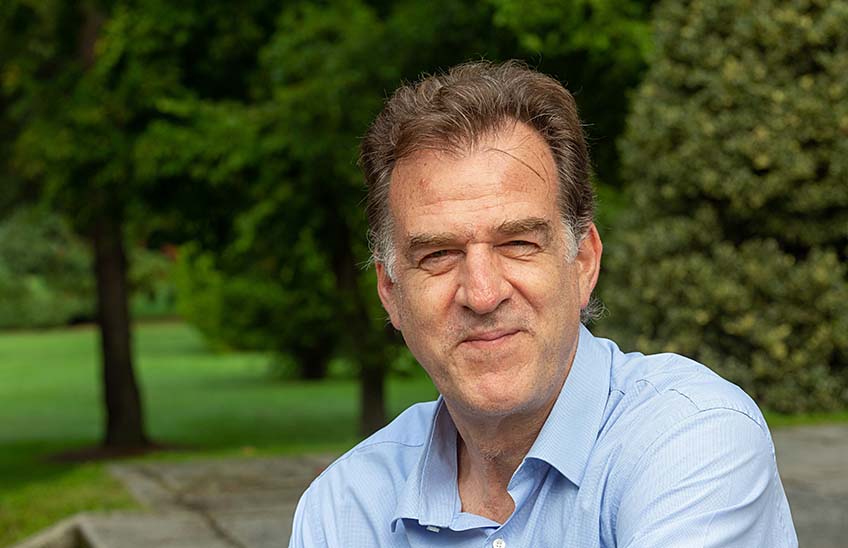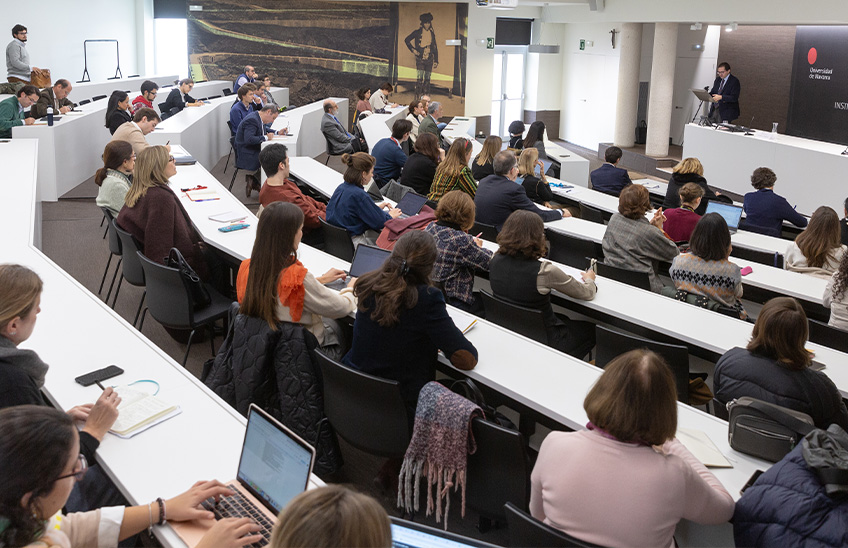"We must develop the human capacity to transcend our own time".
Professor Gabriel Insausti gives the VI Lecture The aims of the Education.

PhotoManuelCastells/
06 | 11 | 2020
What attitude should we adopt towards it, should we accept whatever it offers us, or should we reserve the right to resist its dictates? These and other questions were posed by the professor, poet and writer, Gabriel Insausti, in the VI Lesson "Los Fines de la Education" of the high school Core Curriculum goal to establish a "healthy relationship with our times".
Under these dilemmas, the professor raised "the fact that we inevitably live in an era, but we can live avowedly for it or against it; between the two extremes, all the modalities that can be imagined," he clarified.
Each era has its own personality, Insausti affirmed, an imaginary, some themes, some master lines that constitute "the elements of a narrative that suppose a certain reading of the past and that point to, that even initiate a future", he affirmed. With this, the poet wanted to recall Clio, the muse of History, who "is usually in charge of establishing what those assumptions, that language, that imaginary" are.
Through a brief review of some literary expressions, the professor presented five examples of how some writers have answered these questions (and what they have staked on the challenge).
In the first place, Pierre Drieu La Rochelle narrates in his short story "The Exit Is Forbidden" the subjugation to his time and the consequences that this entails; in second place, the poet and award Nobel, William Butler Yeats, who is considered "father of the fatherland" for living "with" his time. In third place, the Spanish-American writer, Nicolás Gómez Dávila, an unrepentant student of the classics, who lived "from the outside" of modernity, which he never ceased to criticize in successive editions of his aphorisms, which he called "scholia". The fourth example was the German poet Hugo Ball, who described his relationship with his era in "The Flight from Time" in these words: "More difficult than offering resistance to this era is not to worry about it". Finally, he brought up the poet Joseph Brodsky, who decided to live "above" his time, as if there were no limitations to the freedom imposed on him by the Soviet regime.
Throughout his speech, Insausti denounced the lack of freedom of expression in the current era, whose political correctness stifles critical capacity and open dialogue and threatens to reduce to the catacombs all those who want to think for themselves.
At the end of his speech discussion paper, the poet recalled that we live in a Pelagian era, in which "we think we can build ourselves, in the culture of merit". In the face of this, he encouraged the development of the culture of the gift, the habit of reading, "which makes us freer" and the human capacity to transcend our own time.




